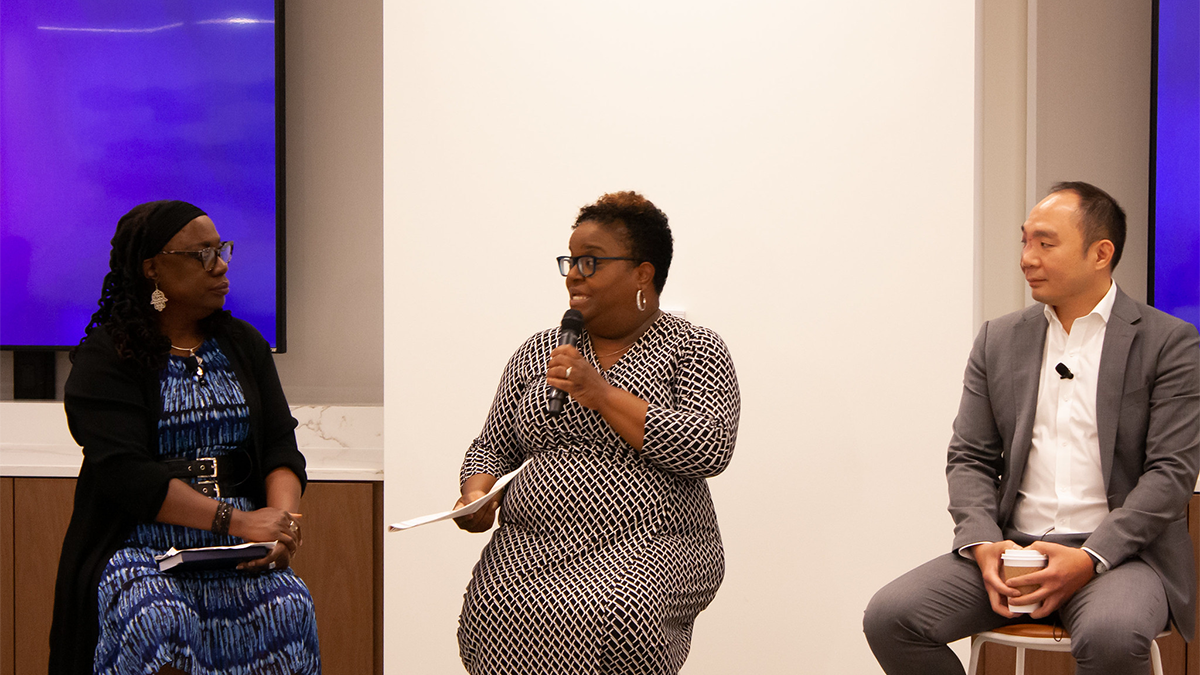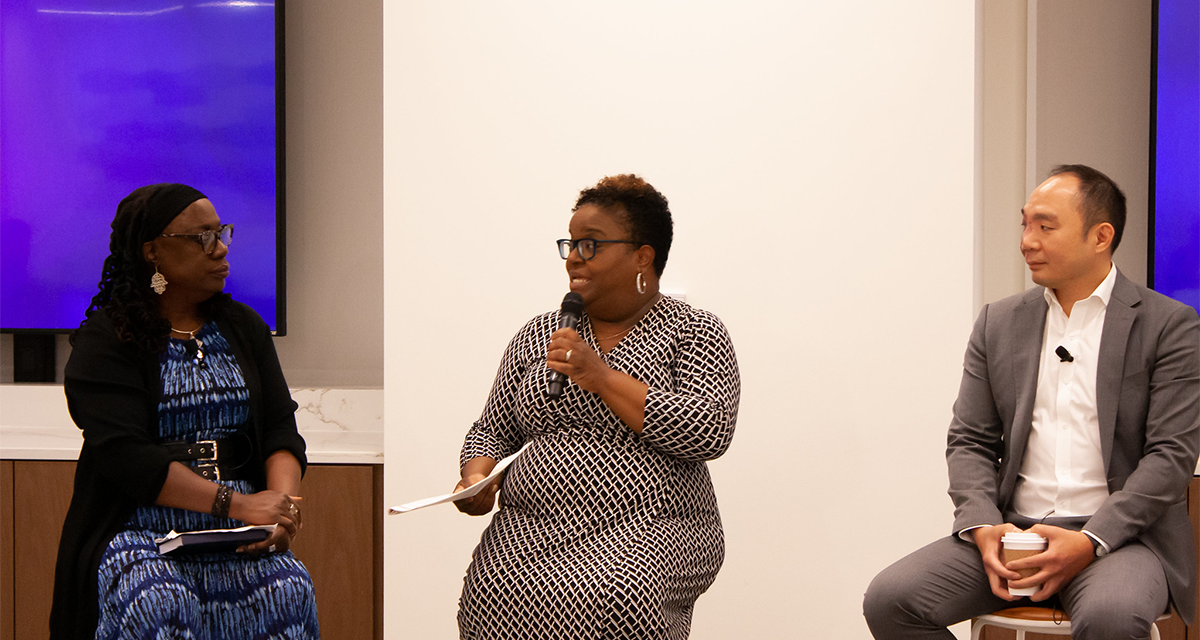
There’s a lack of options in long-term care and services, yet ‘choice is key,’ says Rita Choula of AARP and Joon Bang of Iona Senior Services.
Program Date: Oct. 3, 2023
Rita Choula’s late mother suffered from frontotemporal dementia.
“We were in Prince George’s County at the time, there wasn’t a lot of support there that I could really fully rely on,” Choula, the Senior Director of Caregiving at AARP told NPF’s Long-Term Care Crisis fellows.
She initially took her mom, Theresa, to Iona Senior Services in Northwest D.C. – which provides adult day health services. “I felt that she was secure. I felt that she was cared for, and I felt that she was engaged. They knew how to engage her.”
But Iona was too far and ultimately made the tough decision to put her mom in a nursing home.
Everyone is aging, but how we age is key, Joon Bang, CEO of Iona Senior Services said.
Allowing adults to live with dignity relies on having options, Choula said, but where equity comes in is that we don’t always have those choices.
Key quotes from Rita Choula, the Senior Director of Caregiving at AARP:
“I think within the Black community, as you said, I actually ended up being a black sheep because, although I tried everything to help support my mom, at the end of the day, the best care for her was being in a facility, and that was a big no-no.”
“When we look in Black communities, when we look in Latino communities, and this is across the socioeconomic spectrum, where are the good healthcare centers? Where are the adult day programs? Where are the Iona’s? Iona should be everywhere.”
“I think COVID really kind of woke people up to the crisis that has been brewing in (the) workforce for quite some time. Black and brown and immigrant women are overrepresented in the direct care workforce, and they are under-compensated in the direct care workforce, and so it really is critical.”
“I would love to see a story that talks about the intersectionality of caregivers of older adults. I think so often we silo individuals by race, by economics, by income, by sexual orientation, and gender identity, to be able to tell a story of someone that is experiencing all of these things and the equity issues come at their intersections…”
Key quotes from Joon Bang, the CEO of Iona Senior Services:
“The district’s annual budget is $1 billion. About $66 million go towards aging services, and half a million dollars of the $66 million goes towards community-based organizations that support people living with dementia.
So, if you think about the numbers, there’s about 12,000 people that are estimated to have a form of dementia in the district, and the district has about, among the 84,000, 74% of the aging population are living alone. So, when you look at it from a care perspective and an equity perspective, the dollars are not going towards the services and the supports that people who are aging in this district really need, and so we applied for a federal grant.
The federal grant allows us to work on a three-year project to support older adults who are in marginalized communities living with dementia, and so we’re focusing on two populations. One is the LGBTQ population, and the second one is the intellectual and developmental disability community of older adults who are impacted by dementia.”
“… During the pandemic, more than 40% of the adult day health centers throughout the country closed because it’s a model that is difficult and is unfunded. So, the way in which we’re operating our model in Congress Heights is we need philanthropy to kick in and to help meet the deficit that we run on an annual basis.”
Access the full transcript here.
The America’s Long-Term Care Crisis Fellowship is sponsored by AARP, which also sponsors the AARP Award for Excellence in Journalism on Aging. NPF is solely responsible for the content.





